Africa
First payments made to white farmers affected by land reforms in Zimbabwe

The government of Zimbabwe has announced an initial compensation of US$3 million (£2.3 million) for white farmers whose properties were taken under a contentious government initiative over twenty years ago.
This marks the first disbursement under the 2020 compensation agreement established between the government and local white farmers, in which Zimbabwe pledged to pay a total of $3.5 billion (£2.6 billion) for the confiscated farmland.
Between 2000 and 2001, thousands of white farmers were forcibly removed from their land, often through violent means.
While the land seizures aimed to rectify historical injustices from the colonial period, they ultimately contributed to the nation’s economic downturn and strained relations with Western countries.
The payment announced on Wednesday will address the first 378 farms out of a total of 740 that have received approval for compensation.
This amount constitutes 1% of the overall $311 million set aside for the initial round of payments.
The remaining funds will be disbursed through US-dollar denominated Treasury bonds, as stated by Finance Minister Mthuli Ncube.
He emphasized, “One of our commitments in our efforts to reform the Zimbabwean economy and settle our debts is to compensate former farm owners who lost their properties during the land reform program. We have now started to fulfill that promise.”
Harry Orphanides, a representative for the farmers, informed the BBC that more farmers are now expressing interest in participating in the compensation process.
However, a significant number of former farmers have yet to enroll in the program and continue to retain their title deeds.
The government has limited its compensation to “improvements” made on the land, refusing to pay for the land itself, arguing that it was unjustly taken by colonial powers.
It has also prioritized compensation for foreign-owned farms through separate negotiations.
In January, Zimbabwe initiated compensation payments for foreign investors whose farms were safeguarded under bilateral investment agreements.
Following its independence in 1980, which ended decades of white-minority rule, Zimbabwe saw most of its fertile land owned by around 4,000 white farmers.
The land reform aimed to redistribute land from white owners to black farmers, addressing the injustices of colonial policies that had displaced thousands of black farmers and reserved prime land for white settlers.
In 2000, then-President Robert Mugabe endorsed land invasions carried out by government forces and vigilante groups, leading to widespread international criticism.
President Emmerson Mnangagwa, who succeeded Mugabe after a coup in 2017, has been working to rebuild relationships with Western nations.
Mnangagwa has asserted that land reform is irreversible, yet he has pledged to provide compensation as a crucial means of restoring relations with Western countries.
For over twenty years, the southern African nation has been excluded from the global financial system, resulting in a struggling economy burdened by significant foreign debt.
Experts believe that the land compensation initiative represents a vital move towards improving ties with Western nations and steering clear of international sanctions against Zimbabwe.
Africa
Iran seeks Russia’s support for its nuclear talks with US
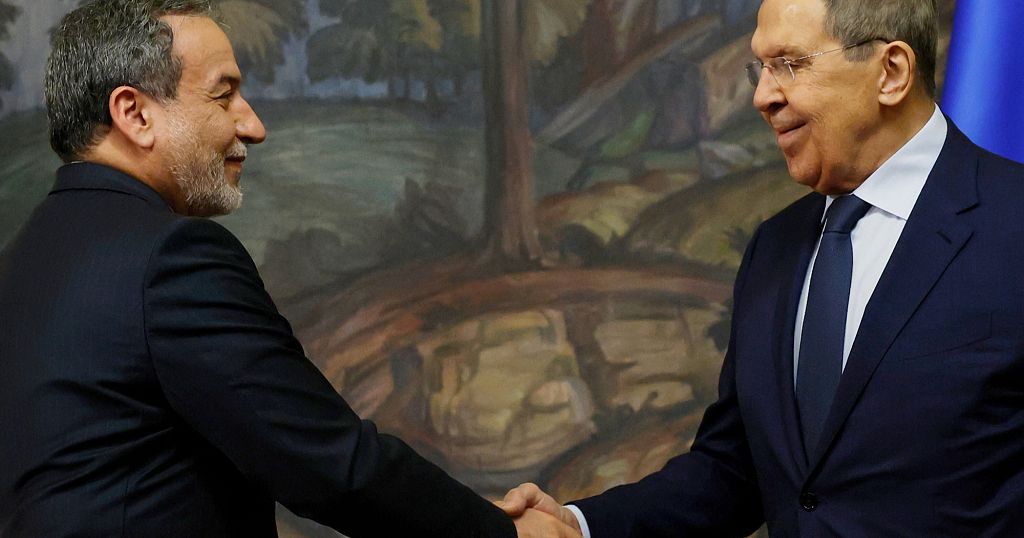
Iran on Friday sought support from Russia over a possible deal with Washington over Tehran’s rapidly advancing nuclear program, ahead of a second round of talks this weekend in Rome.
Iran’s Foreign Minister Abbas Araghchi said he briefed his Russian counterpart, Sergey Lavrov, on the first round of talks in Oman last week and praised Russia’s role in Iran’s 2015 nuclear deal with world powers that led to lifting of sanctions in return for Tehran’s cap on its nuclear activities.
“We are hopeful, and we expect Russia to continue its supportive role in any new agreement,” Araghchi said in a joint news conference with Lavrov in Moscow.
The 2015 nuclear deal collapsed with Trump’s unilateral withdrawal while Iran abandoned all limits on its nuclear program, and enriches uranium to up to 60% purity — near weapons-grade levels of 90%.
Lavrov said Russia was ready to mediate and assist in the nuclear talks.
“We are ready to help, mediate and play any role that, from Iran’s point of view, will be useful and that will be acceptable to the United States,” Lavrov said. “We proceed from the fact that the only option for an agreement, as the (Iranian) minister just said, is an agreement exclusively on nuclear issues.”
Lavrov said Araghchi met with Russian President Vladimir Putin on Thursday in talks that “emphasized the unprecedented dynamics of (the) political dialogue” between Moscow and Tehran. He did not give details, beyond saying Putin was “very pleased” with the talks.
Araghchi said he gave Putin a message from Supreme Leader Ayatollah Ali Khamenei, who has a final say on all state matters in Iran. He did not elaborate.
In Paris, U.S. Secretary of State Marco Rubio expressed hope that talks with Iran are ″fruitful, and that they’re that they can lead to something. We would all prefer a peaceful resolution and a lasting one.″
Rubio met with British, French and German officials in Paris and pressed them to maintain sanctions against Iran instead of allowing them to run out.
″We should all anticipate, based on the public comments yesterday, that they’re about to get a report from the IAEA that says not just is Iran out of compliance, but Iran is dangerously close to a weapon, closer than they’ve ever been,” Rubio said.
He added: “And then they (the Europeans) are going to have to make a decision about whether they want to reimpose these sanctions. And if Iran is out of compliance, they have to reimpose the sanctions.″
Africa
Rwanda agrees to give safe passage to SADC forces leaving the DRC
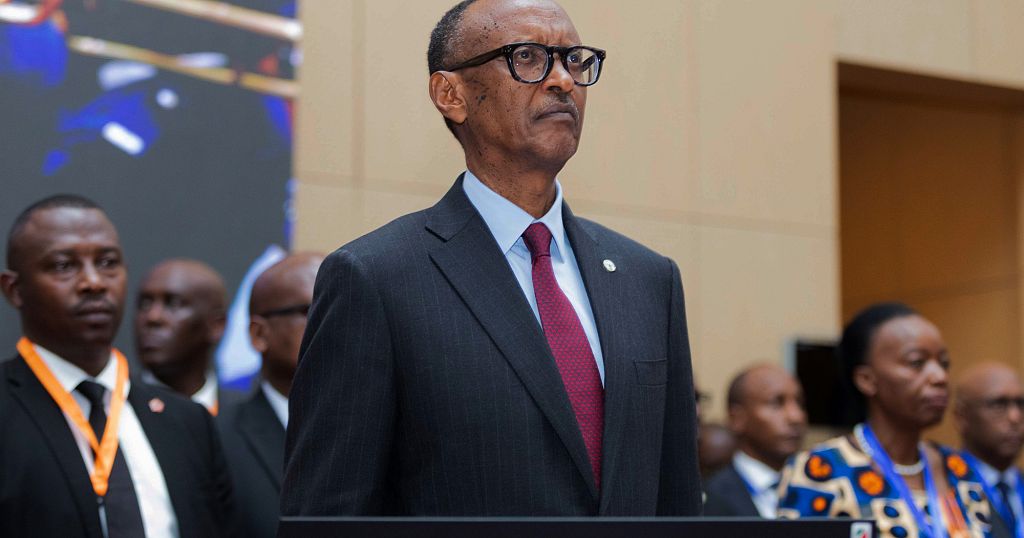
Rwanda has agreed to give safe passage to Southern African Development Community (SADC) forces. This was confirmed by the Rwandan Minister for Foreign Affairs Olivier Nduhungirehe who confirmed this was at the request of SADC who requested to use the eastern African territory as they exit the war-ravaged eastern Congo.
Kigali has in the past been critical of the SADC forces positioned in Congo straining its relations with South Africa.
The SADC forces have suffered a number of casualties in the previous months from the ongoing war.
The force of several thousand peacekeeping troops from South Africa, Malawi and Tanzania had been sent to eastern Congo by the SADC in 2023 to help the Congolese government pacify a mineral-rich region plagued by various insurgencies.
The troops failed to stop the lightning assaults starting in January by the Rwanda-backed M23 rebels that have claimed several key cities and that left several peacekeepers dead, eroding support for the mission in the donor countries.
The SADC leadership announced their withdrawal earlier this month. The SADC mission was part of a myriad of forces operating in the mineral-rich region plagued by decades of armed violence.
They include Congolese government soldiers, foreign mercenaries, a United Nations peacekeeping force and more than 100 groups that are fighting for power, land and valuable mineral resources.
Others try to defend their communities. Some armed groups have been accused of mass killings targeting ethnic groups.
The M23 rebels are supported by about 4,000 troops from neighboring Rwanda, according to U.N. experts, and at times have vowed to march as far as Congo’s capital, Kinshasa, over 1,000 miles away.
Rwanda has rejected charges, including by the Congolese government and U.N experts, that it backs M23 in eastern Congo, a region that is now one of the world’s largest humanitarian crises with more than 7 million people displaced.
The withdrawal of SADC troops comes after the M23 took control of eastern Congo’s main city of Goma and seized the second largest city, Bukavu, in offensives over the past two months.
Fourteen South African soldiers, and at least three from Malawi, were killed in January in the fighting. The United Nations later evacuated a group of critically injured South African.
Africa
219 rescued from human trafficking and cybercrime ring in Ghana
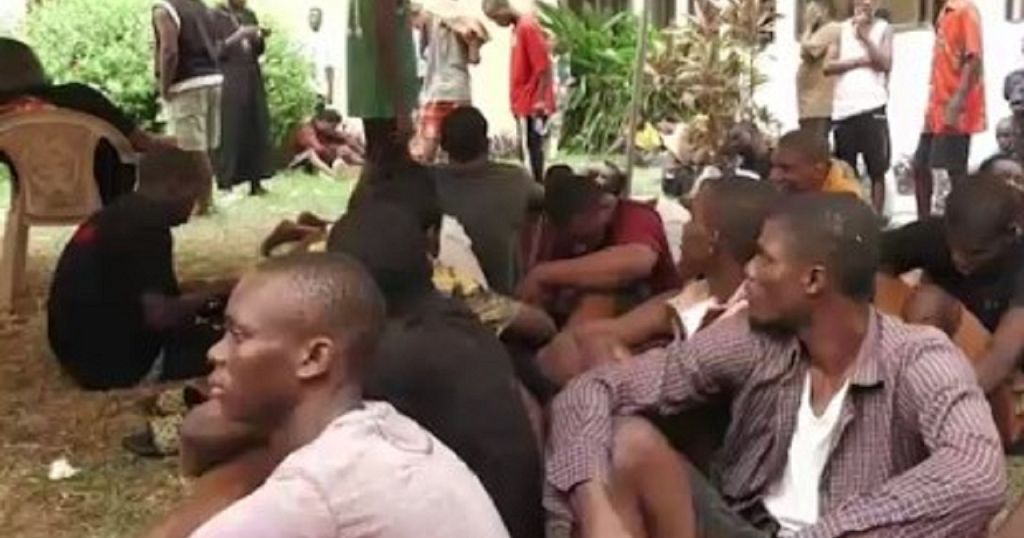
In a sweeping operation led by the Economic and Organised Crime Office (EOCO), 219 people—primarily foreign nationals—have been rescued from a suspected human trafficking and cybercrime ring operating in Oyarifa, a suburb of Accra.
The victims, mostly young individuals from across West Africa, were lured into Ghana with false promises of well-paying jobs and a better life. Instead, they were held against their will under harsh and exploitative conditions.
At a press briefing, EOCO’s Acting Executive Director, Abdul Bashiru, revealed that many of the victims had been confined for extended periods, with some enduring over a year in captivity. “A Nigerian victim disclosed that he was fed only once a day and had no freedom to leave the premises,” Bashiru said.
Authorities uncovered a trove of evidence at the scene, including laptops, internet routers, and other tools believed to have been used in online fraud schemes. Victims were housed in crowded, unsanitary conditions, forced to work long hours under surveillance.
EOCO, in partnership with the Criminal Investigations Department (CID), the Nigerian High Commission, and international stakeholders, has begun a detailed screening process to separate victims from suspects, and to identify minors among those rescued.
During the ongoing operation at Kunzak Estates in Oyarifa, journalists captured visuals of suspects being lined up, screened, and resting on EOCO’s premises while investigations continued. Officials say they expect the screening process to be completed within 24 hours.
Abdul Bashiru emphasized EOCO’s commitment to dismantling the entire trafficking network: “We’ve mapped out strategies for stronger collaboration between EOCO and the CID to intensify efforts against transnational organized crime.”
Repatriation plans for many of the victims—particularly Nigerian nationals—are already in motion. EOCO also confirmed that similar operations are being rolled out in other parts of the country, targeting what it calls a “well-coordinated trafficking network.”
This latest operation highlights Ghana’s growing role as a transit and destination point in the fight against cross-border human trafficking and cybercrime.
-

 Conflict Zones2 days ago
Conflict Zones2 days agoHaiti in ‘free fall’ as violence escalates, rights group warns | Armed Groups News
-
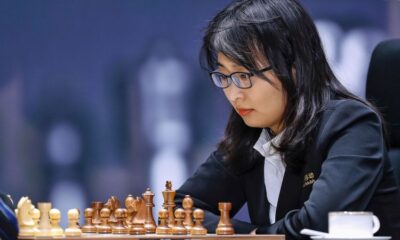
 Sports2 days ago
Sports2 days agoJu Wenjun: Chinese grandmaster makes history by winning fifth Women’s World Chess Championship
-
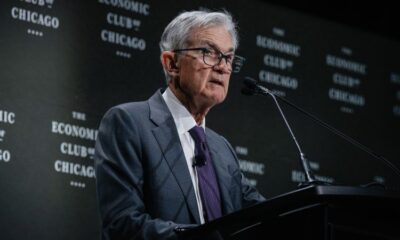
 Europe2 days ago
Europe2 days agoTrump blasts Fed Chair Powell, saying his ‘termination cannot come fast enough’
-

 Sports2 days ago
Sports2 days agoBarcelona player Mapi León banned for two matches after appearing to touch the groin of an opponent
-

 Education2 days ago
Education2 days agoTrump admin threatens to stop Harvard from enrolling foreign students
-

 Sports2 days ago
Sports2 days agoAaron Boupendza: 28-year-old former MLS player dies after falling from 11th floor balcony in China
-

 Europe2 days ago
Europe2 days agoLive updates: Trump meets with Prime Minister Giorgia Meloni of Italy
-

 Sports1 day ago
Sports1 day agoLos Angeles Rams honor first responders by conducting 2025 NFL Draft from Los Angeles Fire Department



